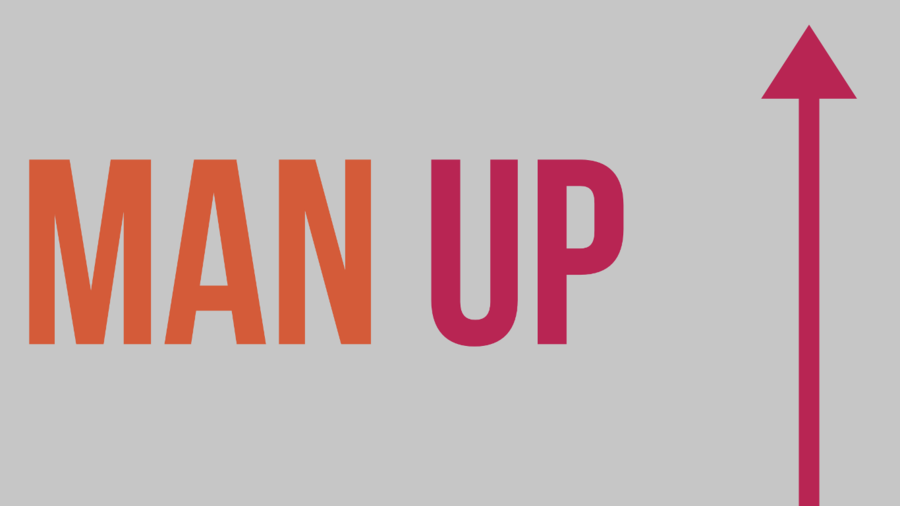Debunking the Myths of Male Sexual Assault
Recently, there has been a great focus—and rightfully so—on sexual assaults involving women. Schools, the media, and other organizations have been speaking out about the issues of sexual assault. Colleges across the nation have been taking the steps to educate students on what consent really is and the prevalence of sexual assault on campus.
However, there is still room for improvement in the way our society handles sexual assault. While the statistic that one in three women will be sexually assaulted in their lifetime is staggering, there is an equally upsetting statistic that few seem to call attention to—one in six men will be sexually assaulted in their lifetime. Researchers argue that this statistic may be a low estimate, considering that males are less likely to report. Another analysis found that 46 percent of male victims reported that their abuser was female.
So why is there not more support for men out there like there is for women?
While the organization, 7000 in Solidarity, tried to create a safe space for male survivors and educate students on male sexual assault during Consent Week, people are still less likely to take a male survivor seriously when compared to a female survivor.
Why is this? Well, it is due to the way society approaches the concept of what it is to be a “man.”
The Myths
There are a number of misconceptions when it comes to the concept of masculinity. Society has trained people into thinking that to be a man is to be tough enough and invincible enough to fight off any perpetrators. This thought concludes that men should never be a target for sexual assault. However, this is not true. Abusers can be older and stronger or use tactics beyond physical force such as bribes, threats, or manipulation to take advantage of someone.
Another myth is the idea that if a man gets sexually aroused from the abuse, then he wanted it. However, men can become erect even in traumatic or harmful sexual situations. Many survivors will feel guilty or shameful because they were aroused, and abusers will use this against the victim to keep them quiet.
It is also thought that men are less affected by the abuse than women. While it has been seen in some studies that men are less negatively affected, there are more studies that show long-term effects are equally damaging to any sex. It can be more harmful for men, since people tend not to believe them, and they are expected to “man up” and work through it on their own. There are numerous lasting negative effects on male victims, including PTSD, depression, alcoholism and drug uses, suicidal thoughts and attempts, low performance at school or work and problems in intimate relationships.
There are numerous myths out there about male survivors, and all of them contribute to the lack of support society gives to men.
Laughing It Off In The Media
The media has the biggest influence on culture, and yet news sources and other media outlets do not use this power for good. Instead, they tend to abuse it and ignore or downplay important issues, such as rape and sexual assault.
In 2011, a morning talk show called “The Talk” was discussing an incident of a wife mutilating her husband’s penis after he filed for a divorce. One of the hosts, Sharon Osbourne, commented that it was “quite fabulous” and “hysterical,” while the other women joined in on the laugh. Though a few minutes later they realized it was inappropriate and changed the subject, the incident should have never been material for jokes. If it had been a woman who was mutilated by her husband, you can be sure that none of the hosts would have had the same reaction.
Another instance of male sexual assault taken lightly was in the movie Horrible Bosses. One of the main running jokes involves Jennifer Aniston’s character, the boss and a dentist, constantly harassing her dental assistant, played by Charlie Day. At one point in the movie, she even drugs him and takes photos of herself explicitly sexually assaulting him. Day’s friends in the movie joke around, teasing him that it could be worse and he should just sleep with her. At the end of the movie, Day choooses to blackmail her as opposed to reporting her.
Aniston received numerous laughs and praise over this movie for being the hot woman in charge, “hilariously” assaulting Day, but what if the roles were reversed? Would she have taken the part if a man were assaulting her every day at work? Definitely not. Aniston should know better, as a highly influential actress in the industry; she should be setting an example for everyone. She should have declined the offer to be in the movie and realized that any use of sexual assault for a laugh is wrong—no matter the sex of the victim. Hopefully, in Horrible Bosses 2, the writers and director will be more sensitive to these issues.
Males In The Military
The U.S. Military has paid particular attention to the number of male sexual assaults. In a report done by The Baltimore Sun on a Pentagon press release discussing sexual assault, it was said that women in uniform are still more targeted than men, but because there are more men than women in the military, officials believe that 53 percent of victims are men. And men reported only 13 percent of incidents. Military officials hope to create safe conditions for survivors to speak out, but getting them to cooperate with investigators is another issue.
Like the U.S. Military, society needs to start taking sexual assault seriously. No assault on any gender should be taken lightly, questioned, or made into a joke. If we live in a society where male victims do not feel comfortable reporting their sexual abuse, how do we expect to rid of all sexual assault?
If you have ever laughed at a rape joke–you’re guilty. If you have ever heard from the news, a friend, or anywhere else about a sexual assault and been surprised–you’re guilty. If you ever assumed in your head that a male victim must have wanted it–you’re guilty. Lets take responsibility and create a safer world for survivors of abuse.





